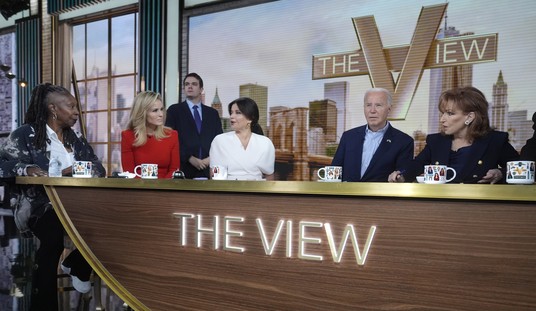Russian politics becomes, in its way, ever less confusing. At least at the top.
Proclaiming “Glory to Russia!” with tears welling from his eyes — whether from sentiment, or a cold wind, remains unclear — Vladimir Putin claimed victory in Russia’s presidential elections on Sunday. Cosmetically speaking, that’s a clarifying development. For the past four years, at least in the West, it has been fairly common when discussing Putin to hear him called president, when of course he was no such thing. Sometimes, while talking about Putin, people would pause in mid-sentence, trying to remember whether he was currently president or prime minister. The official label was, of course, prime minister; though the more helpful commentators would usually add some qualifier to the effect that although Putin was prime minister, he had been president before that, and remained the real power behind the Kremlin.
Or, just to lay it all out like a set of unpacked matryoshka dolls: When the late President Boris Yeltsin retired in 1999, Putin became acting president. He became president in 2000 and again in 2004. In 2008 he became prime minister. Now he is becoming president again, and for a longer term than any previous Russian president, including himself.
This time Putin’s presidential term will last six years, instead of the previous terms of four years, because in 2008 President Dmitry Medvedev — who now qualifies as both Putin’s successor and predecessor (and, some might say, his caretaker) — signed into law an act extending the presidential term to six years from four, starting with the next president. Who, as many predicted at the time, will now be Putin.
In sum, the reign of Putin has already lasted more than 12 years. By the time this third presidential term ends (assuming it does), Putin will have presided for more than 18 years — close to a full generation, and a span that, time-wise, by the end of his new term, will have shaped roughly two-thirds of Russia’s experience since the 1991 Soviet collapse. Putin’s official resumption of the presidency — a punctuation mark, more than an election — comes amid street protests and allegations of electoral fraud, a disenfranchised democratic opposition, and a bullied, brutalized, state co-opted and stifled domestic press. In international affairs, Russia has pocketed President Obama’s concessions, and become ever more staunchly aligned with governments hostile to U.S. interests and to democracy in general, such as Syria and Iran.
Back in the 1990s, when Boris Yeltsin was presiding in the Kremlin and dancing the twist on the 1996 re-election trail, there was tremendous debate over the character of the New World Order taking shape in the aftermath of the Soviet collapse. That was prelude. The real New World Order is now rising, and the portents in Moscow do not look good. One might well wonder — and perhaps someone in the Moscow press corps can winnow out an answer — what will become of that absurd, mislabeled “reset” button that Secretary of State Hillary Clinton in 2009 brought as a token of Obama’s esteem to Russian President Medvedev? Is it now part of the Kremlin’s toy collection? Will it now pass, as a comic symbol of grim continuity, to the keeping of the once and future President Putin?









Join the conversation as a VIP Member